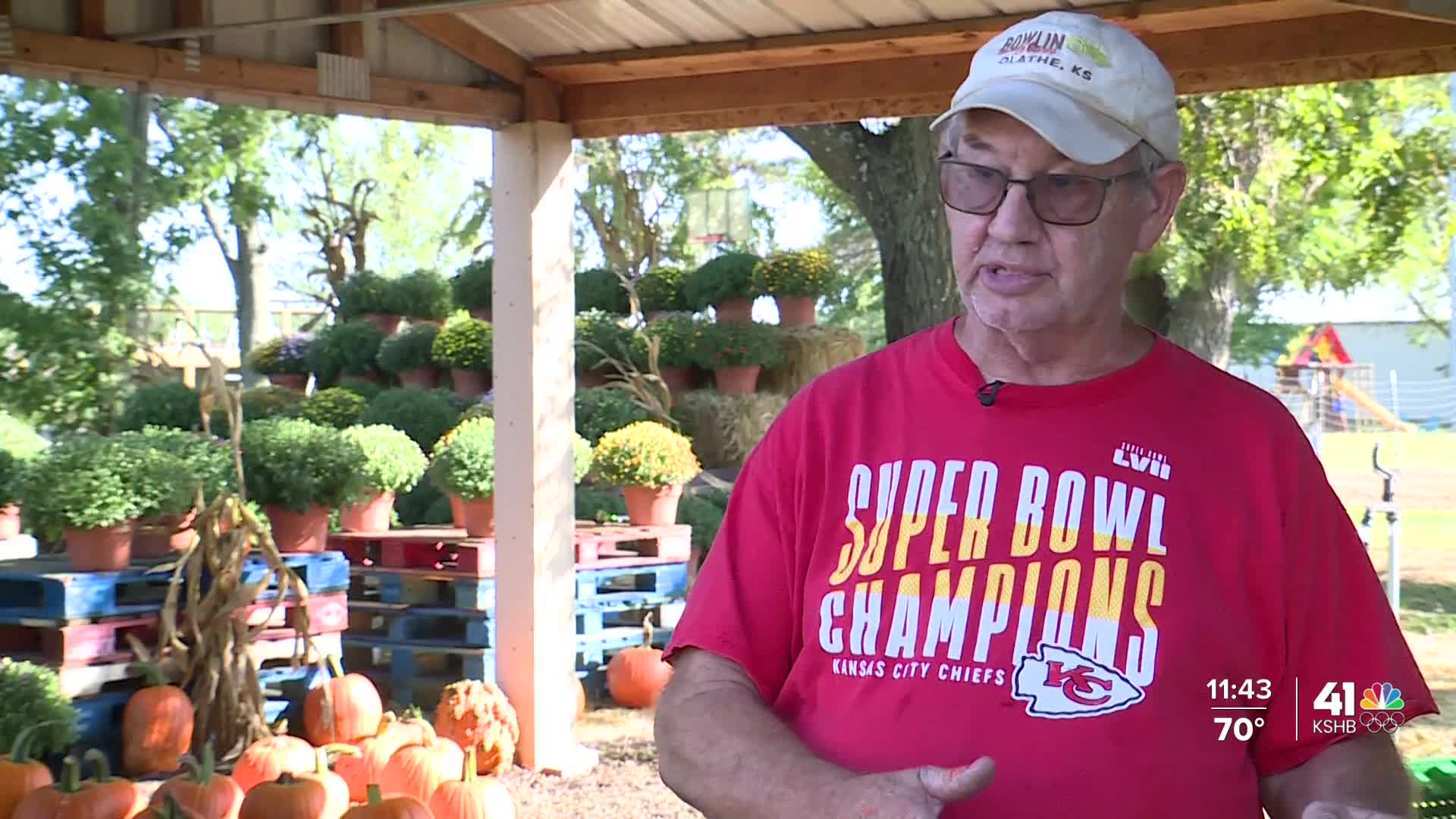KSHB 41 reporter Ryan Gamboa covers Miami County in Kansas and Cass County in Missouri. He also covers agricultural topics such as farming employment. Share your story idea with Ryan.
—
"It's a step in the right direction."
That’s the message farmer Steve Bowlin shared with KSHB 41 agricultural reporter Ryan Gamboa on Sunday after the USDA rolled back seasonal worker requirements for farmers.
Bowlin Farms near De Soto, Kansas, prioritizes itself on its melon and produce production — growing for wholesale, sale at its fruit stand, and for local schools.
The work can't be done without the help of two H-2A seasonal workers from Mexico, Ivan and Victor. They spend about eight months working on Bowlin Farms in rural Johnson County.
"They’re equal to about four people with what they do and how they do it," said Bowlin.
Last week, United States Department of Agriculture Secretary Brooke Rollins was in Kansas City outlining her priorities for the department.
"It’s estimated that U.S. Farm labor expenses this year will be over 54 billion dollars," Rollins said in a speech at the Ag Outlook Forum hosted by the Agricultural Business Council of Kansas City.
RELATED | China soybean orders from U.S. hit zero; USDA’s Rollins urges new trade deals during visit in KCMO
RELATED | 'We're important': Kansas farm relies on Mexican labor amid local worker shortage

We first reported on Bowlin's migrant labor concerns in January.
"It’s better here, because in Mexico, I don’t have work," Ivan told KSHB 41 earlier this month. "I come for work here and I support my family."

As the Trump Administration took office and its immigration heavy priorities struck uncertainty in Bowlin's mind for the employees he calls family.
RELATED | U.S. agriculture reliant on migrant labor, Kansas farmers cite lack of local labor
"My concern is with the whole program, it's becoming so expensive. I don’t know if we’re going to be able to afford it," he said back in January.

Bowlin estimates the cost for his two seasonal workers is about $100,000 each season.
The Federal program requires him to pay for housing, fees to obtain visas, and a set wage requirement. Bowlin also pays an attorney to handle the paperwork and pays for travel. Additionally, they supply Ivan and Victor with meals while on the job.
RELATED | Kansas City area farmers lose big profits following USDA funding cuts
"An apartment in De Soto is $1,000 a month... We pay for it year-round. I am willing to pay extra to ensure this place feels more like home," he explained earlier this year.

When mums and pumpkins hit the stand at Bowlin Farms, it's a sign the season is coming to an end.
With 30 days left in the season, Bowlin is planning for next year. With increased labor costs and breaking even, he and his wife are considering if they can afford to bring Ivan and Victor back.

"We’re doing everything we can right now under statute to make it better, easier, more efficient, and cheaper for our producers to use that program," Rollins said on Thursday.
RELATED | Kansas City named regional hub in USDA reorganization, Secretary Rollins announced
During her speech, Rollins announced the USDA is diligently working to make the H-2A program more affordable. The first step is eliminating the USDA Farm Labor Survey — it's what determines how much Bowlin is required to pay his seasonal workers. It's called the Adverse Effect Wage Rate, which sets individual pay rates by state.

"The USDA Farm Labor Survey was never designed to use government-mandated wage rates," Rollins explained. "That’s why USDA has discontinued this survey and will no longer be used today or any moment in the Trump Administration to justify what is an unreasonable increase in that average wage rate."
Bowlin told KSHB 41 he's required to pay his seasonal workers over $19/hr based on that scale.
"Last year, it was $18," he explained.

Rollins stated she is working with the Departments of Labor and Homeland Security to centralize the paperwork process for the program. Bowlin pays an attorney to navigate the three different state departments.
The Department of Labor will handle the paperwork for the H-2A visa program.

"Just last week, the state department removed the requirement for H-2A temporary farm workers to attend in-person interviews to renew their visas, again another example of us trying to work so hard across every one of our agencies to do everything we can to deliver some relief," Rollins said.
Home for Ivan and Victor is in the southwest state of Guerrero. Bowlin explains that each year, he has been required to pay for additional flights to Monterrey, Mexico, for interviews at the consulate to renew their visas.
"I applaud Secretary Rollins for taking these steps," Bowlin shared. "I hope she's listening to not only big farmers but us small guys. Because it probably affects us worse than someone that’s got 30 workers."

Ultimately, it will take an act of Congress to implement any long-term changes to the H-2A program.
"Keep talking to your congressmen, please, that will help us move these issues forward," Rollins concluded.
Bowlin tells KSHB 41 he's waiting out next year's decision to bring Ivan and Victor back for work, even considering a half-season work option.

It's a tough decision, Bowlin said, because the two have become family. They're even working out a trip to visit their family in Mexico.
"Until I see that wage rate for next year, I can’t make that decision," Bowlin added. "These two guys have become more family than workers, which makes this hard."
—




